Hyundai Company
About Hyundai Motor Company:
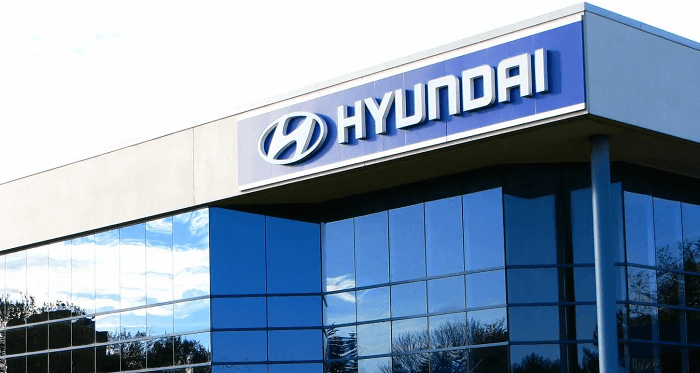
- More than 120,000 Hyundai Motor Company employees, founded in 1967, are dedicated to resolving the world's transportation problems. Over 200 nations have the firm operating there.
- Hyundai Motor is accelerating its journey of becoming a provider of intelligent mobility solutions based on the Company's brand promise of "Progress for Humanity."
- The business pursues open innovation to launch future mobility services while investing in the latest technology, like robots and Urban Air Mobility (UAM), to create innovative mobility solutions.
- To ensure a sustainable future for the environment, Hyundai will keep working to introduce zero-emission vehicles furnished with Advanced electric and hydrogen fuel cell technologies.
- The Hyundai Engineering & Construction Company established the Hyundai Motor Company as a subsidiary in 1967. The business first built cars and trucks for the Ford Company in its vehicle manufacturing.
- Their first vehicle, the Hyundai Cortina, was created in 1975 in collaboration with Ford Motor Company.
- With a 2% market share in the global retail market, they moved to the position of the 13th largest carmaker in the world during the next two years.
- The business decided in 1975 to create its automobile, which it would market under the name "Hyundai." Their first vehicle, the "Hyundai Pony," was created by five of the top British automobile engineers they hired. Due to its compact size and reasonable price, the automobile quickly reached the top of the sales rankings in South Korea.
- The Hyundai Pony arrived on the Canadian market, where it promptly gained the position of the best-selling vehicle. Their output had surpassed 1 million vehicles by 1985.
- They first entered the American market in 1986 with the new "Hyundai Excel" vehicle. This automobile's high quality and affordable price also contributed to its success as a great seller. More than 160,000 units were sold in 1986, and 260,000 were sold in the following year.
- Hyundai has now made a name for itself as a strong contender in the global car market.
- The Medium Sonata, their next offering, was released in 1988. Although the American market did not favor this model, Hyundai was already producing 4,000,000 vehicles annually at the time.
- Hyundai reorganized by making significant investments in its automobiles' quality, design, development, and production. As a result, they developed the first unique four-cylinder gasoline engine with its gearbox, the Alpha.
- All their vehicles in the United States now come with a 10-year or 10,000-mile warranty. As a result, their reputation was enhanced, and more people began to select Hyundai vehicles over those made by other manufacturers.
- It continues to enjoy success because of the introduction of well-liked car models including the Hyundai Genesis, Santa Fe, Elantra, and Tucson.
- Hyundai has won several honors for its cars' longevity and fuel efficiency.
- By 1995, Hyundai had established sales in nations including Australia, New Zealand, Egypt, and Japan, where it presented models that matched each nation's needs.
- The second-largest carmaker in the nation, Kia Motors, was acquired by Hyundai in 1998 for 51% of its shares. It had production facilities in Turkey, the Czech Republic, China, Pakistan, and India in 2000. More than 2,500,000 units were sold, creating $56 billion in revenue for the Company in 2004.
- Hyundai was the world's fourth-largest automaker in 2011, with more than 4.04 million vehicles sold, after only G.M., Volkswagen, and Toyota.
- Hyundai and its subsidiary Kia sold more than 7 million cars in 2012, selling 4.5 million globally.
- As of 2013, Hyundai's operations worldwide produced more than 3,000,000 units annually. It earns more than 82 billion dollars in sales and employs about 75,000 people. Hyundai began in the car sector cautiously and has since developed into one of the most reputable four-wheeler manufacturers worldwide.
- Hyundai's success results from its ongoing commitment to growth and client happiness. Global sales for Hyundai Motor in 2021 will reach 3.89 million vehicles. The company wants to sell more than 4.3 million cars globally in 2022.
Awards And Recognition:
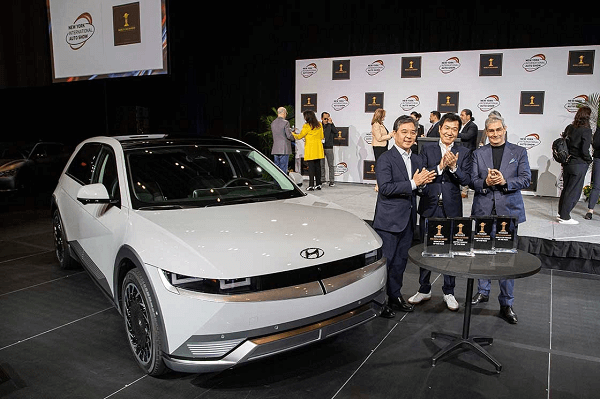
- On May 11, 2022, in Seoul, Three awards were given to Hyundai Motor Company at the 2022 Autocar Awards. The judges of the oldest automotive publication in the world honored SangYup Lee, Executive Vice President and Head of the Hyundai Global Design Center, with the Design Hero of the Year award in addition to the Hyundai i20 N and Hyundai Santa Fe, which were named Britain's Most Affordable Driver's Cars and Best Large Car, respectively.
- The annual Autocar Awards honor the finest in the automobile industry, whether it be new technology or exceptional design. In the presentation, Britain's Best Driver's Cars and Britain's Best Cars Awards were first presented in 2022, providing an even more thorough insight into the automotive sector. The stunning Silverstone Wing hosted a ceremony in person this year.
- Autocar awards the title of Design Hero of the Year to someone who has significantly influenced automotive design throughout their career, not only in the previous year. The IONIQ 5, which recently won the World Car Design of the Year, World Car of the Year, and World Electric Vehicle of the Year honors, is one notable example of SangYup Lee's work as the head of the Hyundai Global Design Center.
- Nevertheless, under Lee's direction, the reviewers were satisfied with Hyundai's design quality across the board. Hyundai took home awards in nine categories at the iF design Awards 2021, continuing a streak of nine years of success. The Prophecy concept car, which was also nominated "Best of the Best" at the Red Dot design awards, received one of Hyundai's four GOOD DESIGN Awards beginning in 2021.
- As the top designer for Hyundai and Genesis, SangYup Lee joined Hyundai in 2016 and currently oversees a staff of 700 designers, according to Autocar's editor-in-chief Mark Tisshaw. At any given time, 50 production cars are being built at 11 design centers across the world under his direction. In particular for the IONIQ 5 and the upcoming
- IONIQ 6 and IONIQ 7, as hinted at by the Prophecy and Seven ideas, he "has masterminded a shift in Hyundai design that has seen it become more appreciated "as per the press announcement.
- "It's a wonderful pleasure to now be sitting beside some of the individuals I consider to be my design heroes," Lee remarked, referring to former winners of Autocar's Design Hero Award. We appreciate the Autocar team for bestowing this distinguished honor on the efforts of the Hyundai Global Design Center. On behalf of all of our designers and engineers, who are devoted, brilliant, and constantly inventive and who continue to reinvent our brand throughout the world, I sincerely appreciate this honor
- At the Autocar Awards, Hyundai Motor won two other product categories, including Britain's Most Affordably Priced Driver's Car for the i20 N, of which Tisshaw noted: "The i20 N gained victory here by quite a margin. The i20 N won 102 points, easily beating out the second place after five judges gave each car a score of 25. Even from the remarkable level of the bigger i30 N, this car advances the N sub-brand far forward and is a solid, tenacious, and serious option for keen drivers.
- Since the i20 N's debut in 2019, it has won several honors, including Top Gear Car of the Year and U.K. Performance Car of the Year. The well-equipped i20 N leverages the strengths of Hyundai's well-known, performance-driven N brand and the popularity of the i20. The multiple-rally-winning i20 Coupe WRC vehicle was an engineering model for the i20 N, a genuine sporting legend. It is equally comfortable, providing its distinct brand of thrilling performance on both the road and the racetrack.
- Meanwhile, the Hyundai Santa Fe was awarded Autocar's Best Large Car, with Tisshaw saying, "If you believe huge cars can't be thrifty and well-priced, or those hardworking SUVs can't feel luxurious or welcome, or those plug-in hybrids make too many sacrifices to be practical in real-world family traveling, Santa Fe stands ready to convince you that you're wrong."
- Since its launch in the United Kingdom in 2001, Santa Fe has been Hyundai's longest-running SUV. The D-segment SUV has earned praise for its comfort and roominess, extensive standard equipment, and practical cabin design. The most recent model offers many changes to provide buyers with a more luxurious option. It also has a bold, distinctive new look, various innovative technologies, and safety measures. For the first time, buyers have the option of a hybrid or plug-in hybrid engine.
- A major success for Hyundai was winning in these highly competitive product categories, according to Young Kim, Head of the Product Division at Hyundai Motor Group. "It's a tribute to the effort to create products that are in a class by themselves and to the incredible people that lead and work in our design and product development teams. Even though the Santa Fe and i20 N are entirely different vehicles, both were made with the same technical skill and innovation.
- To speed up its transformation into a provider of intelligent transportation solutions, Hyundai Motor has updated its "Strategy 2025."
The Focus Of Strategy 2025:
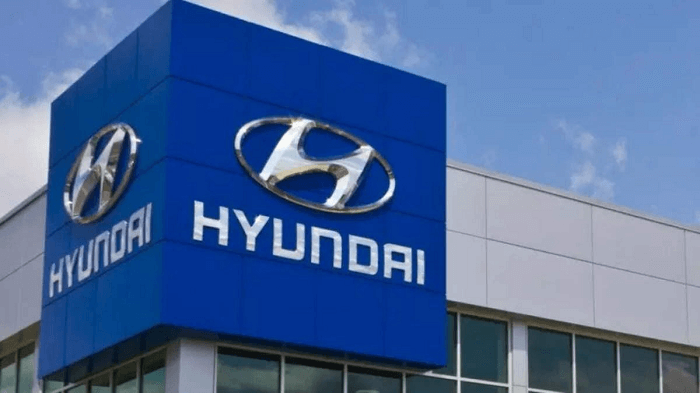
- UAM, autonomous driving technology, hydrogen fuel cell system, and electric vehicles.
- Mid- to long-term, Hyundai will take the lead in the worldwide E.V. market.
- Hyundai aims to hold 8% to 10% of the worldwide E.V. vehicle market.
- From 2021, Hyundai will add the IONIQ EV series to its electrified lineup.
- By 2040, Hyundai plans to completely electrify its product range in the world's major markets.
- Hyundai will provide consumers with a unique mobility experience through its partnership with UAM.
- Hyundai will maintain its leadership in the UAM ecosystem and technology.
- Hyundai plans to create a line of aircraft for both passenger and freight use.
- Hyundai will create a hydrogen fuel cell vehicle for UAM.
- Hyundai plans to boost the introduction of automated cars.
- Beginning in 2021, Hyundai will use the Over-the-Air (OTA) capability.
- In 2022, Hyundai will release new vehicles featuring Lv 3 technology.
- Hyundai will continue to dominate the world in hydrogen fuel cells.
- Hyundai launches the 'HTWO' brand of its fuel cell technology.
- Making improvements to the performance and robustness of the next-generation fuel cell systems.
- By 2025, Hyundai will spend KRW 60.1 trillion to sustain long-term growth.
- Hyundai wants to achieve 8% operating profit in the car sector by 2025.
- Hyundai wants to represent about 5% of the global auto market.
- Hyundai's ambition to dominate the future mobility market as a Smart Mobility Solutions Provider is strengthened by the mid-to-long-term Strategy that President and CEO Wonhee Lee and other executives presented to stakeholders, including shareholders and investors.
Strategy 2025 Roadmap:
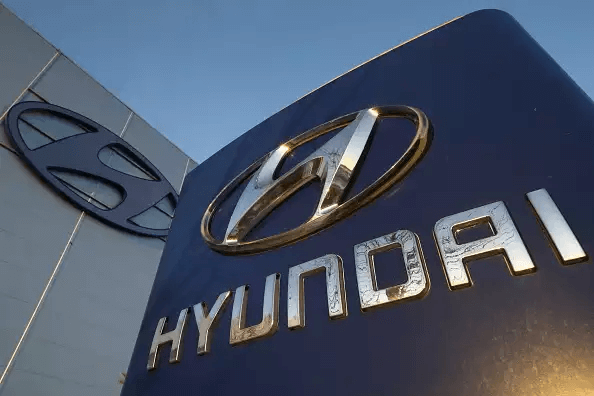
- H2 Solution, which Hyundai added to show its commitment to fuel cell research and development, Smart Mobility Devices, and Smart Mobility Services, all of which were a part of the first plan unveiled in 2019.
- The three major goals of Hyundai Motor's new strategy are to safeguard efforts for a hydrogen ecosystem, provide the foundation for becoming a leading mobility service, and boost the competitiveness of its automotive sector through electrification. The update focuses on four important industrial sectors: hydrogen fuel cell systems, electric automobiles, urban air transportation, and autonomous driving technology. While advancing the ecosystem throughout the whole sector, the update intends to provide customers with novel and complete mobility experiences.
- In 2020, Company started implementing its Strategy for 2025. Despite a difficult business climate brought on by the COVID-19 worldwide epidemic, Company has effectively laid the groundwork for future development. As the business climate changes quickly, Hyundai is now prepared with fresh tactics, according to President Lee. "Hyundai Motor will continue to make mid- to long-term investments to establish the groundwork for sustainable development in the future years, along with our tireless efforts to enhance profitability," the letter announced.
- In addition, Hyundai Motor disclosed its mid-to-long-term financial targets, including investing KRW 60.1 trillion by 2025, securing an operating margin of 8% in the automotive industry, and attaining a 5% market share range globally.
New Strategy 2025:
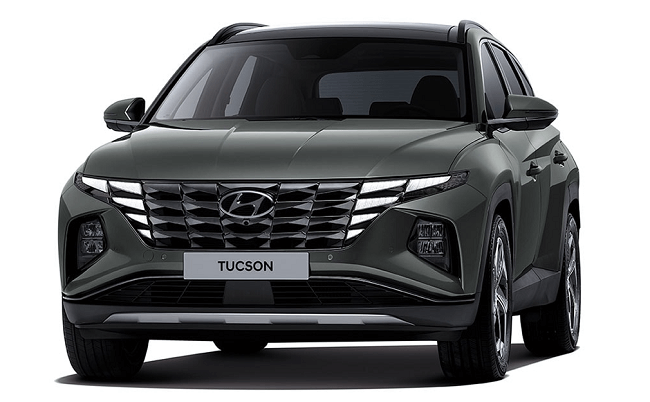
- Hyundai Motor anticipated that the COVID-19 epidemic would quickly digitize the automobile sector, enhance customer demand for sustainable solutions, accelerate the switch from fossil fuels to electrification, and boost investments in the global hydrogen ecosystem.
- While enhancing its value chain and product offerings for the Smart Mobility Device and Smart Mobility Service pillars of Strategy 2025, the company intends to continue its digital transformation to deliver data-driven, optimized cars and services. Based on smart transportation platforms, Hyundai plans to launch a company that offers intelligent transportation. By employing vehicle data, it will diversify its value-added business model and expand the variety of mobility services based on local populations.
- To further the hydrogen ecosystem strategy for its new H2 Solution pillar, the corporation will upgrade fuel cell system technology and extend the fuel cell market beyond the creation of fuel cell automobiles. The Company desires to use its fuel cell technology more widely in all forms of transportation, such as forklifts, trains, ships, and UAMs.
The Electric Car (E.V.):
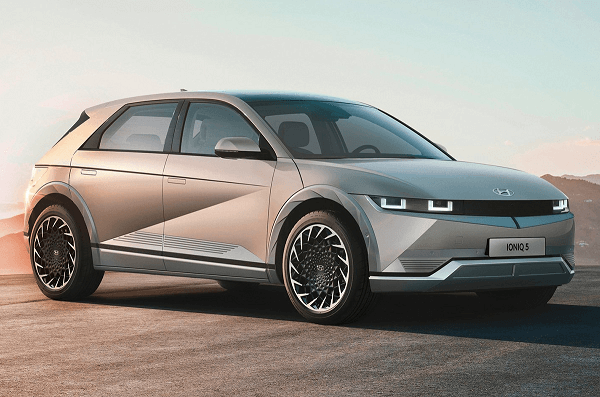
- Hyundai intends to sell 560,000 EVs annually by 2025, beginning with the introduction of the IONIQ 5 in 2021. The business plans to release more than 12 BEV models, including BEVs based on the E-GMP, the platform the Hyundai Motor Group created explicitly for E.V.s.
- Hyundai wants to take the lead in the E.V. industry and capture 8-10% of the global E.V. market by 2040 in the mid-to-long term. The company will gradually expand the number of BEV products it offers in important markets, like as the U.S., Europe, and China, starting in 2030, with the eventual objective of fully electrifying its product line in these areas by 2040. More varied E.V. models will also assist the democratization of E.V.s in developing countries like India, Russia, and Brazil.
- Hyundai will boost part standardization and save costs to accomplish this aim while maintaining manufacturing competitiveness. The business intends to pursue regionally-optimized E.V. product operation methods to fulfill the varied demands of regional customers.
- Hyundai will work on developing the infrastructure for charging and the battery industry and producing E.V. models that are among the best in the world. By 2021, the business wants 20 high-speed charging stations built in Korea. It will continue to collaborate with other partners on high-speed charging network projects overseas, such as high-speed charging network efforts with IONITY in Europe.
- In 2021, the Genesis premium brand will debut a specific BEV vehicle and a derived E.V. model. After the Korean and American markets, Genesis wants to develop its presence in China and Europe to boost awareness and Demand for the luxury eco-brand.
Urban Air Mobility (UAM):
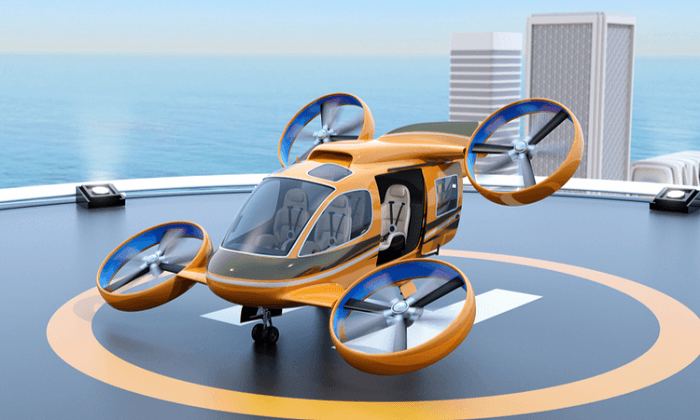
- Hyundai Motor will keep working to create UAM, a brand-new mode of transportation that will reduce traffic in cities and enhance people's quality of life, as a Smart Mobility Solution Provider.
- Hyundai exhibited the S-A1 UAM concept model, which is being created based on four principles: safe, quiet, inexpensive, and human-centered solution, at CES 2020 in January. This vehicle represents Hyundai's vision for future transportation.
- To lead the UAM market, Hyundai Motor will develop a series of aircraft that serves both the passenger and freight transportation markets.
- In 2026, the Company intends to debut an air freight Unmanned Aircraft System (UAS) with a turbocharged engine, followed by an all-electric UAM model designed for intra-city missions in 2028. In the 2030s, the company wants to develop regional air travel interconnecting adjacent cities.
- Hyundai will create its UAM vehicles with an emphasis on scalable commercial manufacturing from the beginning of the development process. Additionally, the business intends to make a hydrogen-powered aircraft utilizing its fuel cell technology from Hyundai, which has unmatched efficiency and range.
- Hyundai will keep working with various stakeholders in the public and commercial sectors to develop a UAM ecosystem that is reliable and acceptable to the general public.
Technology For Autonomous Driving:
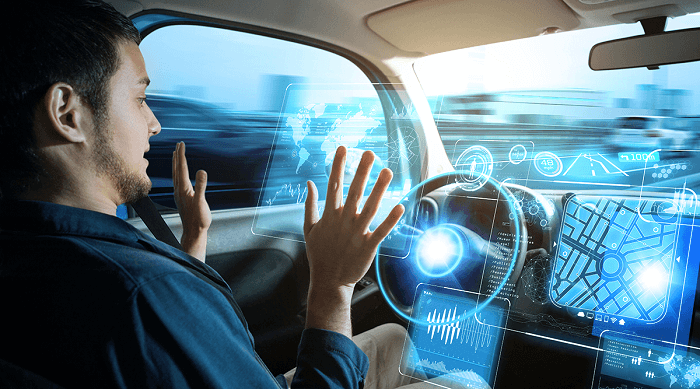
- Especially in sensor fusion and an integrated controller, Hyundai Motor is stepping up its efforts to create autonomous driving technology.
- Hyundai has been using sensor fusion technology, which combines and analyzes data from various sensors, including cameras and radars. To increase the detection performance of its mass-produced cars, the corporation will increase the number of cameras and start utilizing radars.
- Hyundai is creating a next-generation integrated controller by combining high-performance processors with its existing controller. This next-generation controller may be equipped with deep learning-based image recognition technology, level 3 self-driving technology, and self-parking features. In particular, starting in 2021, this unit will be used for Over-the-Air (OTA) update functions. Feature On Demand will also be included (FOD).
- Hyundai aims to start selling cars with level 3 autonomous driving technology in 2022. Additionally, the business will collaborate with partners internationally to accelerate the implementation of level 4 and 5 innovations. As part of its initiatives to encourage international cooperation, Hyundai established Motional Inc. as a joint venture with Aptiv inc.
- Hyundai aims to retain its strategic alliances with and investments in international firms in the U.S., China, and Israel, continuing its efforts to advance self-driving technology for various purposes.
Fuel Cell Technology:
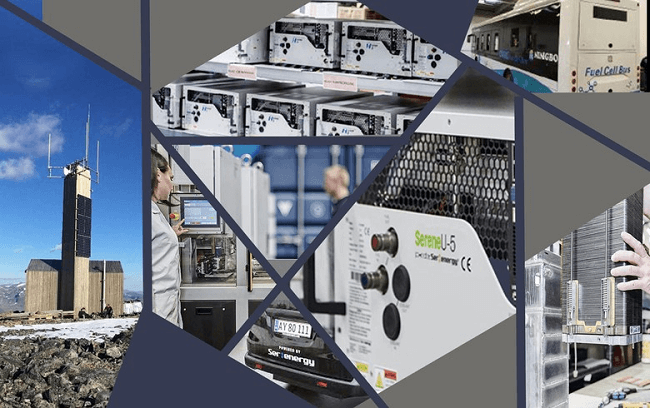
- Hyundai also went ahead with "HTWO," a new brand for its industry-leading hydrogen fuel cell technology. Hyundai will promote hydrogen as useful energy for people, building on its more than 20 years of experience in hydrogen fuel cell technology.
- The words "Hydrogen" and "Humanity," which are the two cornerstones of Hyundai's fuel cell business, are represented by the letters HTWO as well as the hydrogen molecule (H2) itself. With the introduction of the new fuel cell system brand, Hyundai's global fuel cell business will be enabled, and the hydrogen ecosystem will grow.
- Hyundai Motor is accelerating the development of its next-generation hydrogen fuel cell technology with HTWO to utilize it in various transport modes, including UAM, vehicles, ships, and trains.
- The next-generation fuel cell system will offer improved performance and durability at a reasonable price in a lighter design with improved energy density, in addition to being accessible for a wide range of mobility goods and services.
- The Company promises to provide a highly effective and varied range of hydrogen-powered automobiles using its next-generation fuel cell technology.
- Hyundai Motor has developed its fuel cell system business through strategic collaborations with hydrogen, energy, and logistics firms worldwide, concentrating on the key hub regions of Korea, the U.S., Europe, and China. This has sped up the emergence of a civilization based on hydrogen and set the foundation for the Company's HTWO brand.
- Hyundai has been growing its lineup of cars utilizing its fuel cell technology since the introduction of the ix35, the first mass-produced fuel cell electric car, in 2013. These new vehicles include the NEXO SUV, XCIENT Fuel Cell heavy-duty truck, and a fuel cell electric bus.
- Hyundai is dedicated to assisting in the shift to sustainable energy and is a member of the Hydrogen Council, a worldwide alliance of top energy, transportation, and industrial firms with a common vision and long-term aim for hydrogen.
Financial Goals:
- Hyundai updated its mid-to-long-term financial goals under the Strategy 2025 roadmap, which covers the period from 2020 to 2025. These goals include investing KRW 60.1 trillion by that time, achieving an operating margin of 8% in the automotive sector, and holding a 5% share of the global automotive market. This is an improvement to the Strategy announced in December 2019 and will still be implemented despite worsening market conditions brought on by the epidemic.
- Out of the total, KRW 36.6 trillion will be allotted for research and development and capital investments to boost the competitiveness of already-existing businesses. Future technologies will get KRW 23.5 trillion in the financing, including electrified hydrogen fuel cells, UAM, autonomous driving, mobility service and platform, connectivity, A.I., and robotics.
- The investment in electrification and hydrogen companies, in particular, surged significantly to KRW 14.9 trillion from KRW 10.4 trillion reported last year due to the implementation of the hydrogen business and the development of the E.V. lineup.
- Despite the COVID-19-related market uncertainties, Hyundai Motor will keep working to achieve its 8 percent operating profit margin objective for the automotive industry by 2025 through cost innovation to establish the groundwork for long-term, sustainable development.
- In the case of internal combustion engine automobiles, where it is predicted that demand would restart internationally after COVID-19, the company will concentrate on regaining profitability.
- With the launch of the E-GMP platform, the firm will solidify its position as the industry leader for E.V.s. It aims to enhance E.V. enterprises' competitiveness at all phases of development, manufacturing, and sales to reach profitability.
- The corporation also aims to increase shareholder value through a return strategy accommodating to the market. Despite worries about the state of the economic climate in 2021, the firm intends to take yearly dividends into account when determining how to restore liquidity and profitability.
|









 For Videos Join Our Youtube Channel: Join Now
For Videos Join Our Youtube Channel: Join Now










